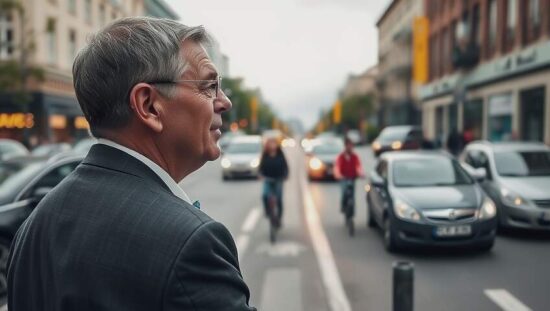Germany’s transition to more sustainable transportation faces significant hurdles, according to Tarek Al-Wazir, Chairman of the Parliamentary Committee on Transport.
While acknowledging positive trends – an increase in electric vehicle adoption, greater use of public transport and rising bicycle and pedestrian traffic – Al-Wazir noted that the overall number of cars on German roads remains stubbornly high. He indicated that, although many individuals are reducing their car usage to a few times per week, complete abandonment of personal vehicles has not yet materialized.
A key obstacle, according to Al-Wazir, is ingrained habit. The convenience of personal vehicle access remains deeply embedded in public expectation. He stressed the importance of securing long-term financial stability for the Deutschlandticket – a nationwide public transport pass – to foster public trust and encourage a shift in travel behavior. He also highlighted the potential of car-sharing schemes, pointing out that most vehicles remain unused for the vast majority of the day.
Beyond public transport infrastructure, Al-Wazir advocated for a re-evaluation of urban space allocation, suggesting that parking currently occupies a disproportionate amount of land that could be repurposed for pedestrian and bicycle lanes. He acknowledged the continued importance of personal vehicles in rural areas, but emphasized the need for improved bus and rail connectivity in those regions, advocating for a pragmatic approach that recognizes practical limitations on service frequency. He concluded that a fair and balanced mobility strategy, utilizing the most appropriate transport method for each situation, is essential for a successful transition.





